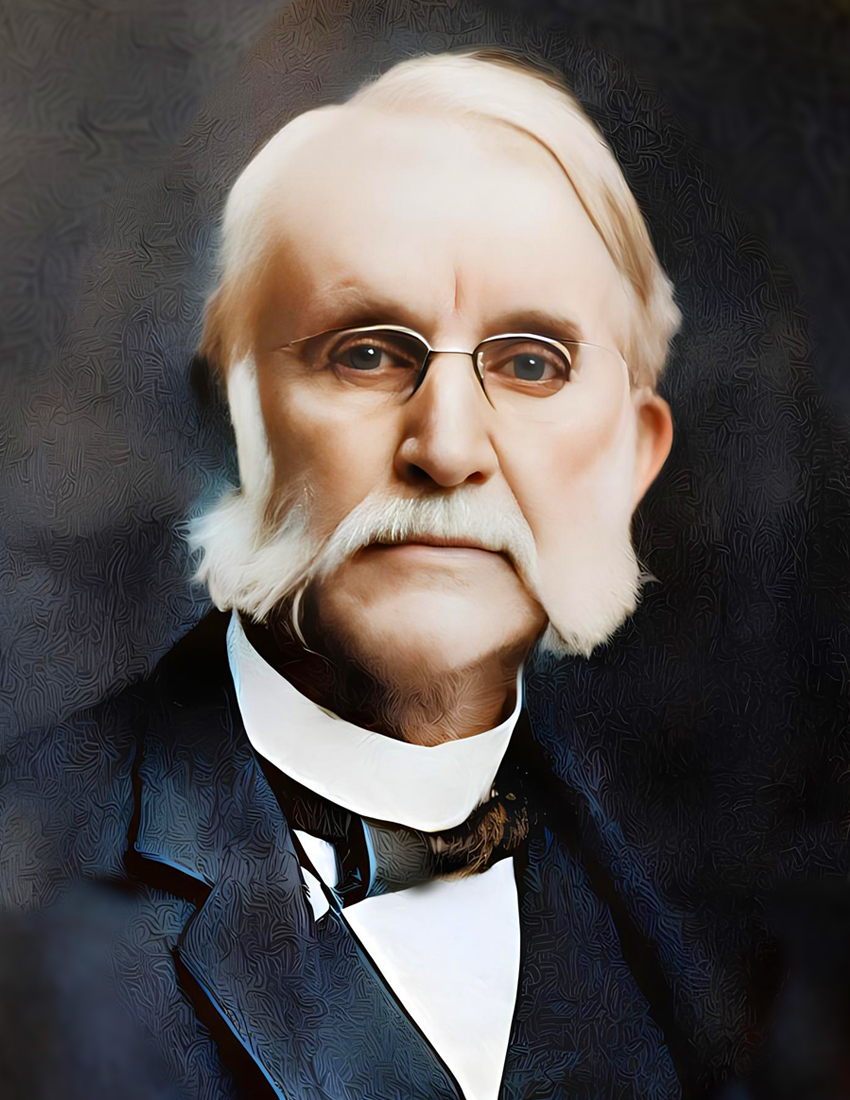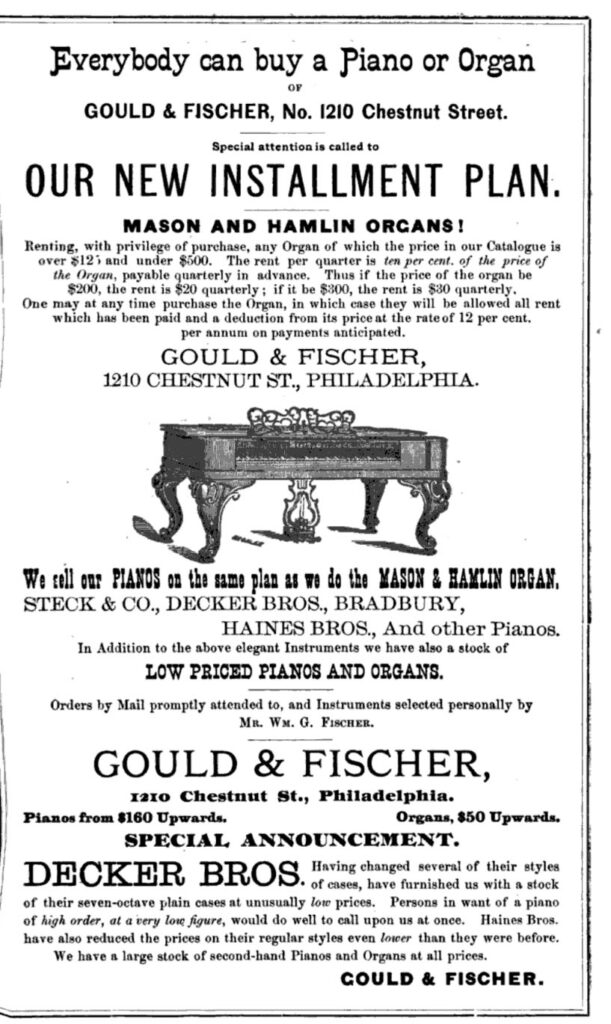Born: October 14, 1835, Baltimore, MD.
Died: August 13, 1912, Philadelphia, PA.
Buried: Mount Moriah Cemetery, PA.
William G. Fischer

Hymns by William Fischer
Everybody can buy a Piano or Organ of GOULD & FISCHER, No. 1210 Chestnut Street.
Renting, with privilege of purchase, any Organ of which the price in our Catalogue is over $125 and under $500. The rent per quarter is ten per cent. of the price of the Organ, payable quarterly in advance. Thus if the price of the organ be $200, the rent is $20 quarterly; if it be $300, the rent is $30 quarterly. One may at any time purchase the Organ, in which case they will be allowed all rent which has been paid and a deduction from its price at the rate of 12 per cent. per annum on payments anticipated.
A Musical Journey from Baltimore to Philadelphia
Born in Baltimore on October 14, 1835, William G. Fischer was destined for a life immersed in music. The son of a German immigrant, Fischer’s musical talents blossomed early, setting the stage for a remarkable career that would touch countless lives through sacred song.
A Musical Prodigy
At the age of eight, young William was already leading singing in a German church in Baltimore. His passion for music drove him to join a church singing class, where he learned to read music. This early foundation would prove invaluable as he later studied piano and organ under skilled instructors.
Balancing Trade and Melody
Fischer’s journey took an interesting turn when he learned bookbinding at J. B. Lippincott’s in Philadelphia. However, his evenings remained devoted to his true love: studying and practicing music. This balance of practical trade and artistic pursuit would shape his future endeavors.
A Leader in Sacred Music
Fischer’s talent for leading choirs and choruses in sacred music made him a sought-after figure in Philadelphia. His ability to train and guide large groups of singers, regardless of age, spoke to both his musical acumen and his patient, nurturing nature. This skill led him to teach singing, piano, and music theory, spreading his passion for music to others.
Fischer’s connection to Welsh music festivals further expanded his influence. His direction of the combined Welsh Societies at the bicentennial of William Penn’s landing showcased his ability to bring diverse musical traditions together in harmony.
From Professor to Piano Merchant
In 1858, Fischer’s expertise earned him a position as Professor of Music at Girard College. For a decade, he enriched the lives of students through music education. Before leaving this role in 1868, Fischer ventured into the piano business, a move that would prove highly successful.
Fischer’s entry into the piano trade was marked by his partnership with John E. Gould. Together, they built one of the most prosperous piano houses in the country. After Gould’s death in 1875, Fischer became the sole proprietor, further expanding the business. His keen business acumen, combined with his deep understanding of music and instruments, allowed him to thrive in this competitive industry.
As the business grew, Fischer brought his oldest son, Charles, into partnership. This family collaboration continued until 1898 when Fischer retired, passing the reins to Charles. The success of the piano business not only showcased Fischer’s entrepreneurial skills but also allowed him to remain closely connected to the world of music he loved so dearly.
A Legacy in Gospel Songs
While Fischer’s accomplishments in education and business were significant, his lasting legacy lies in his compositions. His gospel songs have touched hearts wherever the Gospel has been preached. Although he was often urged to publish books of sacred music, Fischer preferred to write and supply others, content to see his work spread through various channels.
Among his most beloved hymns are “I Love to Tell the Story” and “Whiter than Snow.” These songs, with their simple yet profound melodies and lyrics, continue to inspire worshippers today, showcasing Fischer’s ability to capture the essence of faith in music.
William G. Fischer’s life journey from a young boy leading singing in a Baltimore church to a respected composer, educator, and businessman in Philadelphia exemplifies the power of dedication to one’s passion. His contributions to sacred music continue to enrich worship services and touch hearts, allowing his musical legacy to resonate through generations.


